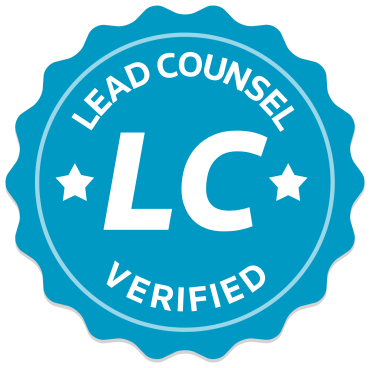Indianapolis Homicide Lawyer
Representing Those Facing Homicide Charges
At the Law Office of B.D. Williams , you can turn to a trusted legal professional who has decades of experience, holds national recognition as a trial lawyer and exclusively practices criminal defense for clients in and around Indianapolis, Tippecanoe County and Madison County. Our Indianapolis homicide defense attorney brings strong credentials to your defense, which is what you need when facing such serious allegations. He will thoroughly review all aspects of your arrest, the law enforcement investigation, police procedure and more in search of evidence favorable to you. Our lawyer will then devise the strongest possible defense strategy on your behalf.
Call (317) 500-4857 or fill out our online contact form today to schedule a free initial consultation with our Indianapolis homicide lawyer. We are available 24/7!
Understanding Indiana’s Homicide Laws
Indiana’s homicide laws encompass a broad range of offenses, each defined by the circumstances surrounding the unlawful killing of another person. These laws classify homicide into various categories based on intent, recklessness, or negligence, and provide the legal framework for prosecution and defense.
Key Elements of Homicide Laws in Indiana
Intent and Premeditation
Charges such as murder require proof of intent or premeditation, meaning the act was planned or deliberate. Voluntary manslaughter, however, may involve intent but is often committed in the heat of the moment, reducing the charge’s severity.
Recklessness and Negligence
Charges like reckless homicide or involuntary manslaughter focus on actions that display disregard for human life or failure to exercise proper care, leading to a fatal outcome.
Fetal Homicide Laws
Indiana recognizes the unlawful killing of a fetus, except in the case of legal abortion, as a distinct offense under its feticide laws.
Felony Murder Rule
A person can face murder charges if a death occurs during the commission or attempted commission of certain felonies, such as robbery or arson, regardless of whether the death was intentional.
How Indiana’s Legal Definitions Impact Charges
Homicide charges are not uniform. For example:
- Reckless Homicide: This charge applies when a death results from actions that were reckless but not intentional, such as operating a vehicle recklessly.
- Voluntary Manslaughter: Charged when a killing occurs during a heated moment without premeditation, reflecting a crime of passion rather than planning.
Feticide: Specific to the death of a fetus caused intentionally or knowingly, apart from legal abortion procedures.
Types Of Homicide Charges In Indiana
Homicide consists of the unlawful killing of another person. It can be committed in various ways, according to Indiana law. These various types of homicide are based on the accused person’s role in the action, their intent and how the actions taken led to the victim’s death. Regardless of the type of homicide involved, if you are being investigated or have been arrested for homicide, you need the help of an experienced Indianapolis homicide defense lawyer. Your choice of an attorney may be one of the most defining factors in the outcome of your case.
Indiana law has established seven types of homicide:
- Murder: This involves the intentional killing of another.
- Causing suicide: This is done by force or deception and is charged as a Level 3 felony.
- Assisting suicide: This involves providing the means for the victim to commit suicide or by participating in the act. It is charged as a Level 5 felony.
- Voluntary manslaughter: This is the knowing or intentional killing of another while in the “sudden heat” of the moment. It is charged as a Level 2 felony.
- Involuntary manslaughter: This involves the killing of another while committing or attempting to commit another crime that would pose the risk of serious bodily injury. It is charged as a Level 5 felony.
- Reckless homicide: This is the reckless killing of another and is charged as a Level 5 felony.
- Feticide: This is the knowing or intentional killing of a fetus (does not include legal abortion) and is charged as a Level 3 felony.
Accused of homicide? Schedule a free, initial consultation with our Indianapolis homicide attorney online or by calling (317) 500-4857.
Indiana Homicide Penalties
Indiana felony punishments for homicide include fines of up to $10,000 and the following prison terms:
- Level 2 felony: 10 to 30 years (advisory sentence: 17.5 years)
- Level 3 felony: Three to 15 years (advisory sentence: nine years)
- Level 5 felony: One to six years (advisory sentence: three years)
An “advisory sentence” is a recommended sentence that the court may or may not take into consideration when determining sentencing for a homicide punishment. In all cases, aggravating circumstances can result in a stiffer sentence, while mitigating circumstances can lead to a more lenient sentence.
The Death Penalty
Indiana is one of the states that still allows for the death penalty as a punishment for murder. In order for an individual to receive the death sentence, they must have been at least 18 years old at the time the murder was committed. Individuals who were under 18 when committing a murder may be eligible for life in prison without the possibility of parole but not the death penalty.
Aggravating Circumstances
To be sentenced to death in Indiana, the prosecuting attorney must prove that at least one aggravating circumstance was present when the crime was committed and that there are no other mitigating circumstances that may outweigh them. These aggravating circumstances are laid out in Indiana homicide laws. The qualifying aggravating circumstances include:
- Murder committed when committing or attempting to commit: burglary, arson, child molestation, kidnapping, rape, carjacking, robbery, criminal gang activity
- Murder committed by “lying in wait”
- Murder committed by intentionally detonating an explosive device
- Previous conviction of or commitment of murder
- A murder in which the victim was burned, mutilated or tortured while alive
- A murder in which the victim was dismembered
- A murder in which the individual was paid or hired to kill the individual
- The murder was committed while in custody, on probation or on parole
- The murder was committed by intentionally firing a gun into a home or vehicle
- The murder victim was a probation officer, police officer, judge or fireman killed on duty or because of their occupation
- The murder victim was under 12 years old
- The murder victim was also a victim of another violent crime for which the defendant was convicted
- The murder victim was a witness in a case against the defendant
- The victim was pregnant and the fetus was also killed
Death Penalty Appeals Process In Indiana
If you do face death penalty charges, even after being convicted, you have multiple opportunities to appeal your case at both the state and federal level.
- Direct appeal to the Indiana Supreme Court: This review will work to identify any legal issues that occurred during your trial, conviction, and sentencing
- State post-conviction review: This review will focus on determining whether there were any factual issues that occurred during your trial, including whether you received competent counsel
- Federal habeas corpus review: This review focuses specifically on any violations of your constitutional rights
Homicide Defenses
If you are being charged with homicide or murder, you may be able to reduce the charges or the penalties you are facing by having your homicide defense attorney introduce mitigating circumstances. Mitigating circumstances refer to any additional information that a jury or judge should be aware of that may cause them to deliver a lighter sentence or punishment for the crime committed. Some examples of mitigating circumstances in a murder defense include:
- If you had no significant criminal history prior to the homicide
- If you were experiencing extreme mental or emotional upheaval when the murder was committed
- If you lacked the ability to understand your actions and the law because of a mental defect, disease or intoxication
- If you committed the act because you were coerced or under the control of another person
- If you were only an accomplice and not the primary actor in the homicide
- If the victim was a willing participant
Call Indianapolis Murder Defense Lawyers
At the Law Office of B.D. Williams, we are committed to providing unwavering defense for individuals accused of murder or other homicide-related charges in Indianapolis and the surrounding areas. Our legal team has the knowledge, resources, and determination to challenge the prosecution’s case, uncover favorable evidence, and build a strong defense strategy tailored to your situation.
Attorney Brian Williams is a skilled homicide defense lawyer who has what it takes to fight for your rights. If you need legal representation in a homicide case, contact the Law Office of B.D. Williams today by calling (317) 500-4857 or contacting us online.
Frequently Asked Questions
What is the sentence for reckless homicide in Indiana?
Reckless homicide in Indiana is classified as a Level 5 felony. This charge typically carries a sentence of one to six years in prison, with an advisory sentence of three years. Additional penalties may include fines of up to $10,000, depending on the circumstances of the case.
How many years is manslaughter in Indiana?
The sentence for manslaughter depends on the type of manslaughter charged:
- Voluntary Manslaughter is a Level 2 felony and is punishable by 10 to 30 years in prison, with an advisory sentence of 17.5 years.
- Involuntary Manslaughter is a Level 5 felony, carrying a sentence of one to six years, with an advisory sentence of three years.
What is the code 35-42-1 in Indiana?
Indiana Code 35-42-1 pertains to crimes involving homicide. This section of the law defines various types of homicide offenses, including murder, manslaughter, reckless homicide, and feticide, along with their associated penalties.
What is the difference between homicide and manslaughter?
- Homicide is a general term for the unlawful killing of another person and can include charges like murder, manslaughter, and reckless homicide.
- Manslaughter specifically refers to cases where the killing was unintentional or occurred under circumstances such as “sudden heat” (voluntary manslaughter) or during a reckless act (involuntary manslaughter).
How bad is a Level 5 felony in Indiana?
A Level 5 felony in Indiana is considered a mid-level felony. It carries a sentence of one to six years in prison with an advisory sentence of three years. Examples include reckless homicide and assisting suicide. While serious, these offenses are less severe than higher-level felonies such as murder or voluntary manslaughter.
Is a death caused by recklessness considered manslaughter?
Recklessness can result in a manslaughter charge, but it is more accurately referred to as reckless homicide under Indiana law. Reckless homicide occurs when a person kills another through actions that display a blatant disregard for human life, making it distinct from manslaughter in intent and legal classification.








